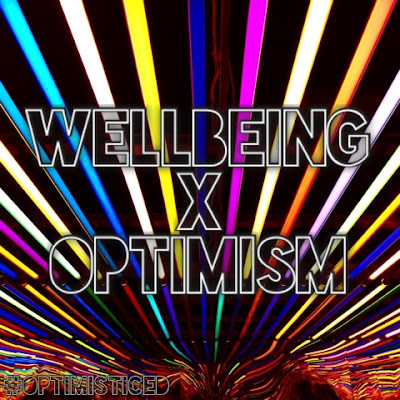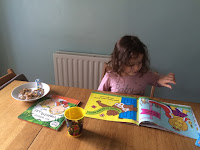It all started when, every week, an unemployed friend would ask me how my week had been, to which I invariably replied 'Busy!'. As time went by, he began answering the question for me: 'Busy?' I felt mightily uncomfortable as I highlighted the major difference between my week and his: I was 'busy' and fulfilled, he was largely at a loose end as he applied for job after job, consequently feeling very unfulfilled. I decided to stop saying I was busy, instead telling him some of the things I'd been doing instead, making for much more interesting conversation.
I decided to completely stop using the word - not to colleagues, not to my wife and not to my friends. By definition I was, and still am, busy, but I ceased to describe myself so.
Apart from boring people with a one word answer when they genuinely enquired about my week, there has been another benefit too:
In telling others that I was busy, I was telling myself that I was busy too. And in telling myself that I was busy, I told myself that I didn't have enough time to do everything that I needed to do. I found myself writing things off before I even had a chance to look at my schedule - 'How could I possibly fit that in? I'm way too busy.'
Now that I don't label myself as busy, I am finding that I have a better attitude towards the additions to my to-do list. Now I think 'I can do that. I can fit that in'. And I do. I've also found (as previously mentioned here under 'Routines and Busyness') that when my schedule is full I work more efficiently; knowing that there are other things lined up for me to do means I get on with tasks.
On a practical note, there are three things that have really helped me with fitting lots into my day:
I decided to completely stop using the word - not to colleagues, not to my wife and not to my friends. By definition I was, and still am, busy, but I ceased to describe myself so.
Apart from boring people with a one word answer when they genuinely enquired about my week, there has been another benefit too:
In telling others that I was busy, I was telling myself that I was busy too. And in telling myself that I was busy, I told myself that I didn't have enough time to do everything that I needed to do. I found myself writing things off before I even had a chance to look at my schedule - 'How could I possibly fit that in? I'm way too busy.'
Now that I don't label myself as busy, I am finding that I have a better attitude towards the additions to my to-do list. Now I think 'I can do that. I can fit that in'. And I do. I've also found (as previously mentioned here under 'Routines and Busyness') that when my schedule is full I work more efficiently; knowing that there are other things lined up for me to do means I get on with tasks.
On a practical note, there are three things that have really helped me with fitting lots into my day:
- the apple calendar (there are other calendars available) which syncs between my ipad, iphone and icloud. I use this instead of a paper diary these days and I plan jobs into consecutive blocks of time. The calendar reminds me when it is time to do something; it's a bit like having my mum around and is very effective - I have to do it if the calendar tells me to.
- the apple reminders app which again syncs between devices. Both this app and the calendar app allow you to schedule and set reminders for jobs - this is almost the key to all my organisational success! Naturally I'm quite forgetful, but with these apps, you'd not be able to tell. I am now in the habit of reaching for the nearest device and making a note on my job lists (in the reminders app) or booking something in to my calendar, meaning that I don't have to remember to write it down later. If something doesn't end up getting done, I just change the date and time of when I'm going to do it.
- an actual notebook, you know with paper pages. I have no scraps of paper. Everything goes in the notebook: CPD notes, planning ideas, answers to maths tasks that I need to mark, observation jottings, SLT meeting notes... everything goes in!
So by being busy, but not thinking of myself as busy, I find myself maximising the time I have and using it much more effectively. It's been a very simple change, but one that psychologically seems to have had a big impact on how I work.





























